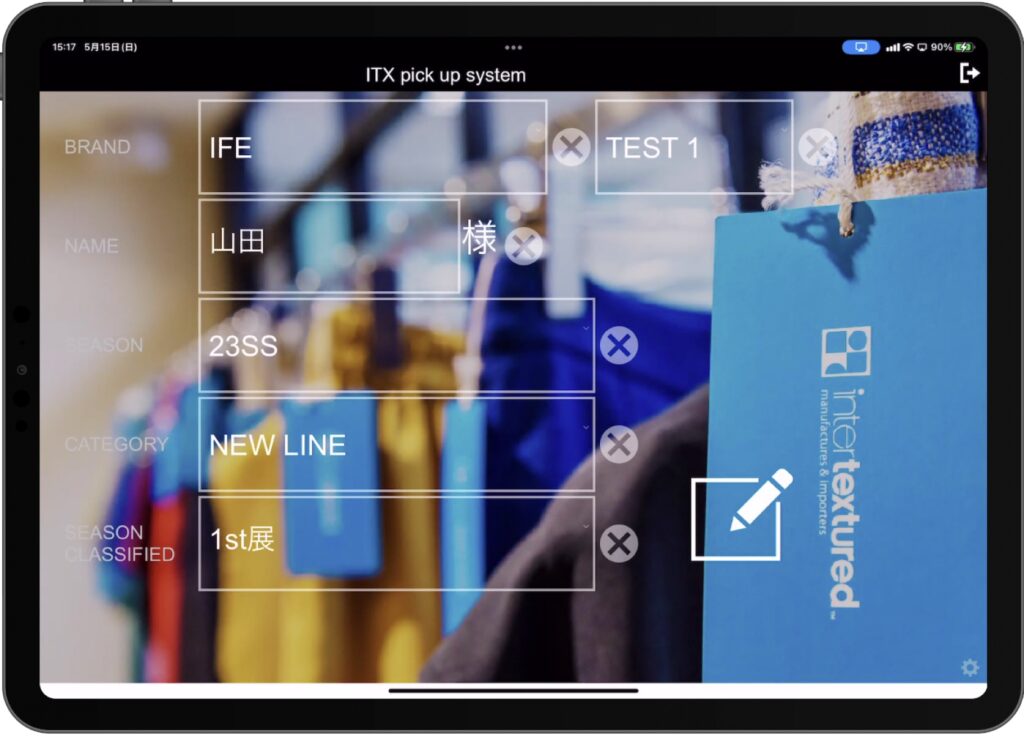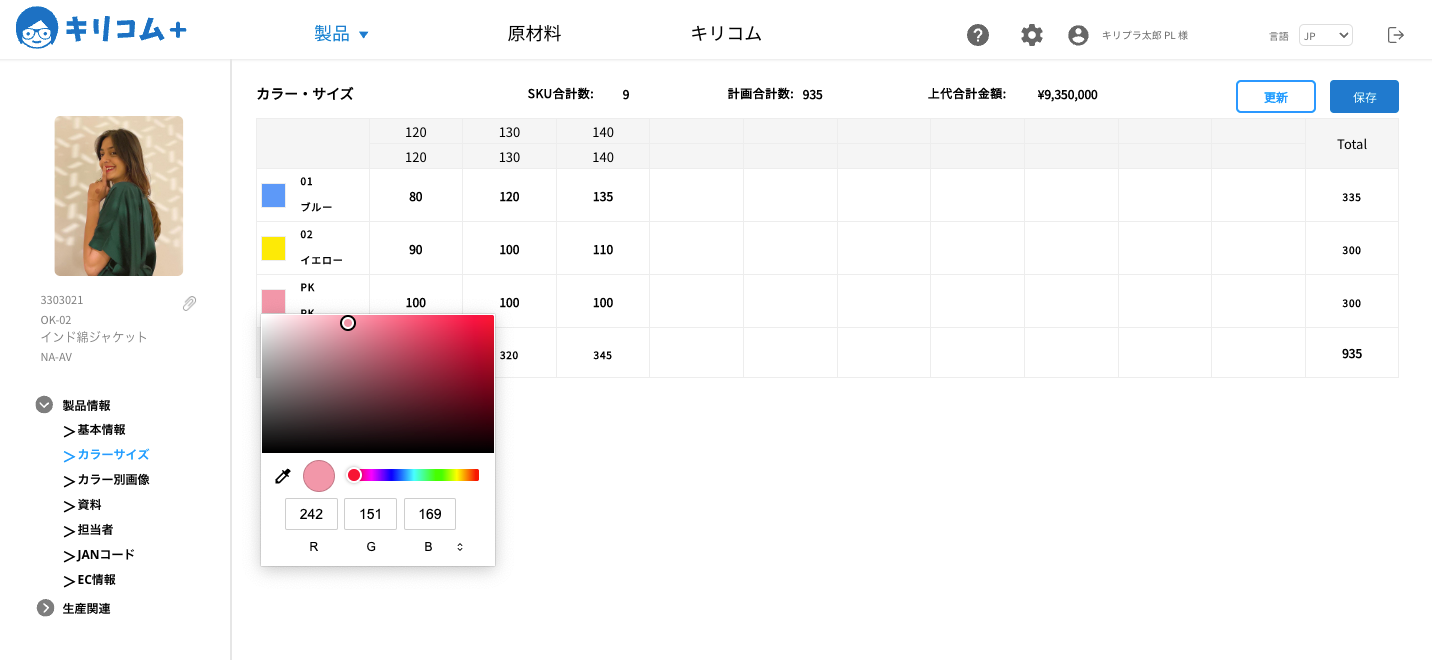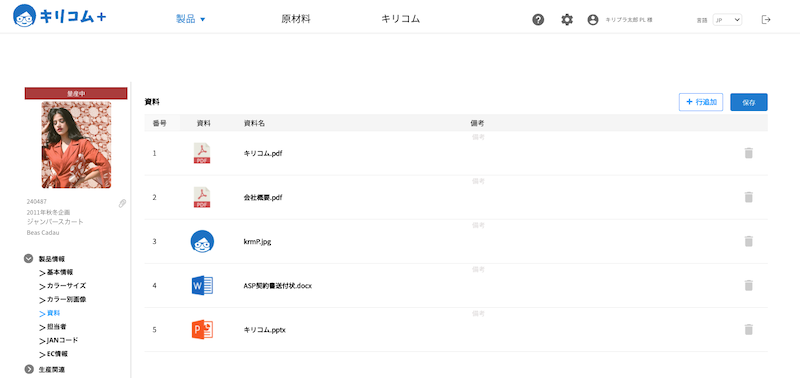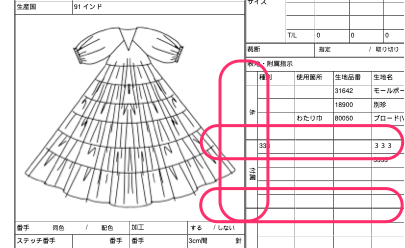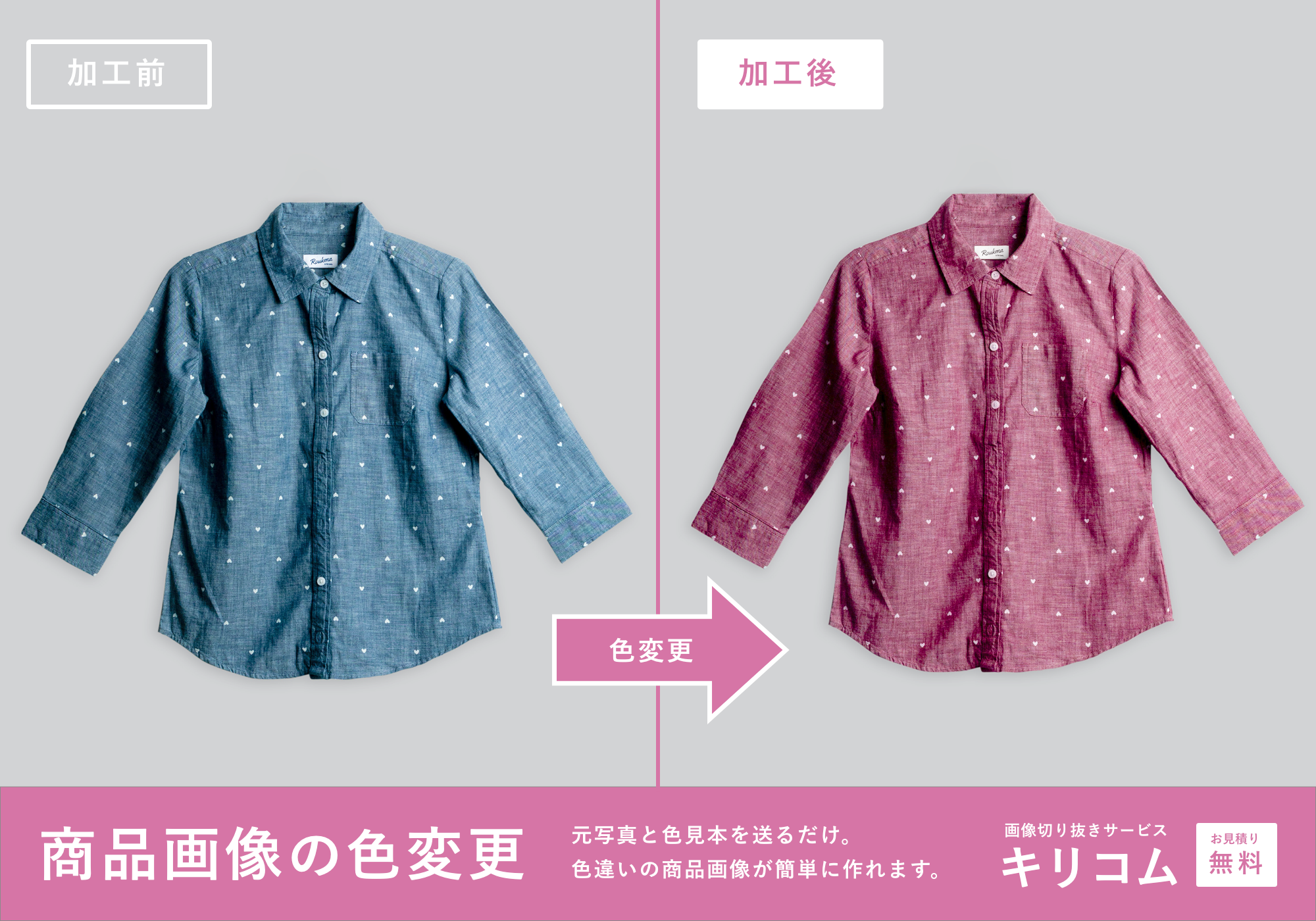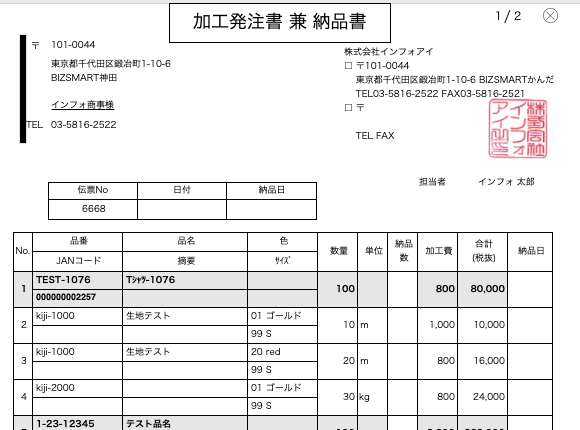Kiricom PlusYou can create a “line sheet” by using and registering your products.
((Although in the apparel industry it is called many different things, sometimes “order sheets,” “swatches,” “maps,” etc.)
This “line sheet” is essential for introducing products to customers and will be used to keep a single exhibit or group of products together.
The line sheet is also used to guide customers and receive orders.
In Kiricom Plus Product RegistrationHowever, by registering other detailed information, such as color, size, top cost, and delivery date, it is possible to create a line sheet that is easier for customers to understand.
In the created line sheet, the pictorial type can be moved freely by drag-and-drop, and can be downloaded as a PDF file.
I can also easily view itemized totals at the touch of a button.
It is also important to verify the information within the line sheet.
One last point.
Line sheets have a one line sheet relationship for one item number.
Once a line sheet is created and registered, the item cannot be registered on any other sheet.
If you want to register it on another line sheet, you have to exclude it from the original sheet.
The purpose is to avoid duplication when using line sheets to receive orders.
We often hear that if the same product is registered on various line sheets, it is very difficult to tally the orders.
Kiricom Plus is constantly researching to make the system even easier for customers to use.
Here is a short video of the line sheet creation process.
We hope you will experience Kilicom Plus for yourself.
Kirikom Plus is a free cloud service that allows you to centralize your image and product management.
In Kirikom Plus,New introduction consultationBeginning with the “Mere Old Man”,Online ConsultationWe also accept
Please feel free to contact us!
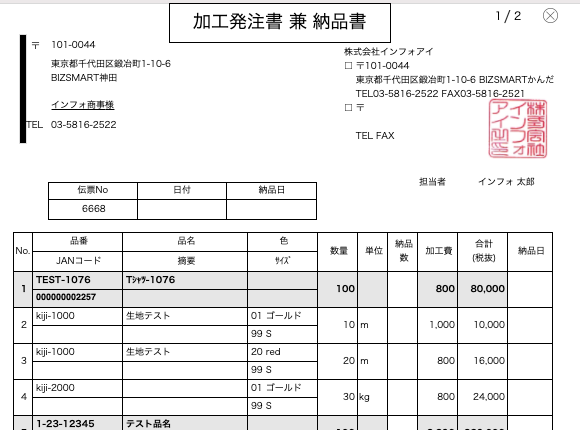
We have added processing order and prorate processing and actual prorate processing functions to APASYS.
In order to make one product, raw machines and materials are sent to a processing shop, and they come up as one product, or only embroidery is done.
We have had a function similar to the processing order function up until now, but we think the release of this function has refreshed our mind.
When processing orders are placed and raw machines and other equipment are moved, inventory must naturally be reduced, and various units should be considered in conjunction with the units at the time of shipment,
When they are returned as products, of course, the units have changed.
Also, the production may be done by group.
We were able to release APASYS as a function while discussing these series of processes with the customer.

